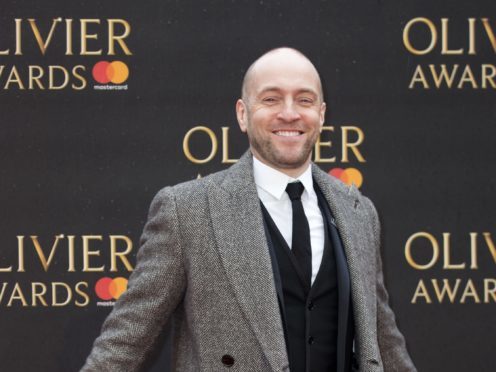Derren Brown has said he is glad he does not get asked to read the minds of strangers when out and about much any more, because it was “frustrating”.
The illusionist and mentalist said that things have “softened over the years” in terms of the reaction he now gets from fans, 18 years after becoming a household name with TV show Mind Control.
Brown told the Press Association: “Years ago, (people would ask) ‘can you read my mind, can you do it on me?’ which isn’t always what you want.
“You wouldn’t say to a singer ‘can you sing a song?’ necessarily. So that was sometimes a bit frustrating.
“But it’s really changed over the years. I never really get asked that any more.”
Brown, 47, said that he does not mind read much these days, and that he is more likely to be approached in public by people wanting to discuss his 2016 book Happy, or by those who attended his live events.
He added: “It’s generally people who have enjoyed my shows, it’s spoken to them, it’s meant something to them or changed something in them because, if you’re essentially just an entertainer, it can feel a bit banal.
“It’s nice if people have actually taken something meaningful away from it.
“I’m not aware of people being really wary that I’m reading their minds or their body language or anything. It’s probably happening, but I’m not like that in real life.
“I find it such an exhausting way of being.”
Brown was last on TV with 2016 special Pushed To The Edge, which saw him draw on the notion of social coercion to convince someone to push another person off the roof of a building.
The programme aired on Channel 4, where Brown’s previous shows had been shown, but he has now made the move to Netflix with Sacrifice, in which he attempts to radically transform one man’s prejudices using covert psychological techniques.
As well as the change of broadcaster, Brown said he was keen to change his TV efforts from being all about him.
He said: “I’ve tried to move, particularly the TV shows, away from, ‘Look at me, aren’t I clever?’ because that’s not interesting to anybody.
“I’ve tried now to do shows where I’m more in the background and someone else – a real life person – is going through a real life situation.
“I’ve created it, but nonetheless they are going through real drama for themselves.
“It’s much more interesting than somebody just showing off.”
He added that he wanted to make his new show more “uplifting and positive” because Pushed To The Edge was “quite dark”.
Sacrifice sees a right-wing American man forced to decide whether or not to give up his life for a complete stranger, who he thinks is an illegal immigrant.
Derren Brown: Sacrifice is on Netflix from Friday October 19.
